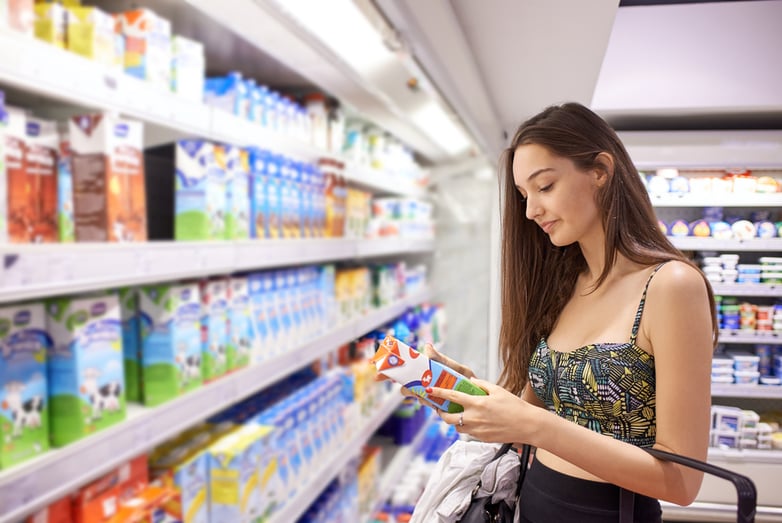
Packaging Materials: A Crucial Choice for French Consumers
|
Private label
Posted By:
Trace One
"What matters the jug, if drunkenness be within?"
Alfred de Musset’s maxim doesn’t seem to have as much truck with French consumers as it perhaps once did, particularly if that jug happens to be made of plastic, endocrine disrupting chemicals, or otherwise non-recyclable material. For several years now, we’ve seen a steady trend in French consumers making the question of product packaging a critical factor in their choices, and we expect the trend to continue.
According to a 2020 study by TwoSides Association, 70% of French people surveyed say they are ready to “actively choose” to reduce their use of plastic packaging. And in another study, 64% express the desire to stop buying products whose packaging they consider harmful to the environment altogether. This clear, popular consensus is finally being heard by politicians and industry alike, and both spheres are responding with stepped up initiatives to answer the people’s concerns.
The first challenge facing our relationship with disposable packaging is dealing with the recyclability of plastic. While some plastics are fairly easy to recycle, others less so, and some complex plastics are not recyclable at all. For instance, black plastic--used to flatteringly contrast the natural color of certain products such as meats--not only cannot be recycled, it also can contaminate the recycling process of other plastics. Currently, black plastic represents nearly 15% of all plastic arriving at recycling centers.
Players in the distribution industry are faced with the dual tasks of both reducing the amount of plastic being used in packaging, and gradually eliminating those plastics that are either difficult or impossible to recycle. But there is a third, as yet unaddressed factor essential to building a sustainable strategy when it comes to waste reduction, and that is consumer convenience.
Trace One specializes in bringing manufacturers and retailers together, and here, Product Marketing Manager Charlotte Le Coz has succinctly put her finger on the issue: “sorting”.
Having to sort various component materials from a product’s packaging--such as a bottle, its label, and its cap--can be inconvenient or infeasible for the end user, but according to Le Coz manufacturers and retailers are working hard to “make sorting easy on the consumer,” and ultimately to eliminate the issue altogether by making it possible for any and all components--caps, bottles, various containers and lids, etc.--to be recyclable together.
It will certainly be a combination of these various approaches that the immanent challenge of waste reduction will be met. Under pressure from consumers, the distribution sector has begun to show support for change, but the French government has also taken bold, proactive steps by creating the National Pact on plastic packaging, signed in 2019 by nearly every company in the distribution industry. The Pact’s ambitious goal is to convert the industry to a minimum of 60% recycled plastic by 2022, and 100% by 2025. (Compare this to 29% recycled plastic in 2019.) Long term governmental goals extend to attempting to eliminate single-use plastic packaging entirely by 2040.
French consumers are aware of the urgency of this issue and this is one of the driving forces behind the developments already underway. Product packaging acts as a "tool of differentiation" in stores, explains Le Coz. Brands "must constantly innovate to adapt to consumer trends,” and packaging will make one brand stand out from another. This explains the development of new packaging models favoring cardboard, simple plastics, reusable packaging, and even the resurgence of bulk sales.
The environmental concerns of the French are of course not unique to the French alone, and international consumer trends are making waves across the global retail sector. So much so that new professions, such as package engineering, and new areas of research and development have emerged. Le Coz at Trace One predicts that these changes are in fact still in their infancy, and should accelerate in the years to come.